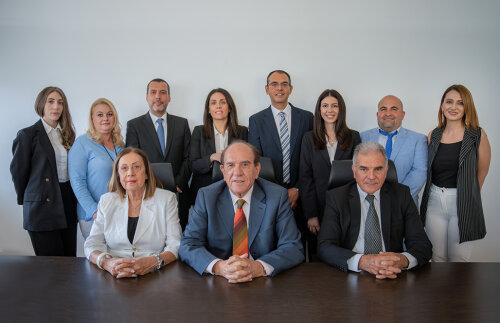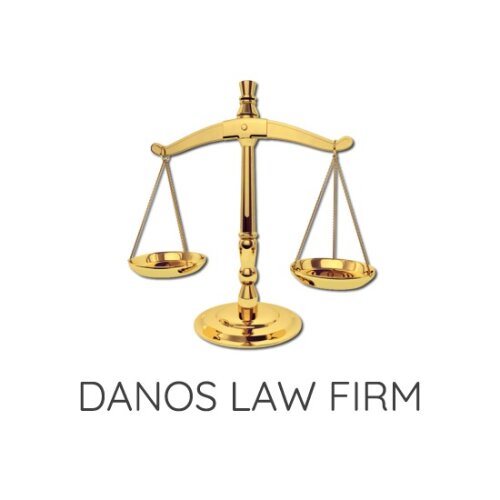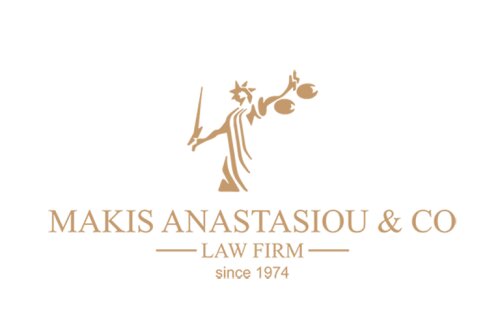Best Agriculture Lawyers in Limassol
Share your needs with us, get contacted by law firms.
Free. Takes 2 min.
List of the best lawyers in Limassol, Cyprus
About Agriculture Law in Limassol, Cyprus:
Limassol, Cyprus, is known for its diverse agricultural sector, ranging from vineyards to citrus fruits to vegetables. Agriculture plays a significant role in the economy of Limassol, with many farmers and agricultural businesses operating in the region. Agriculture law in Limassol is a specialized area that governs the rights and responsibilities of individuals and companies involved in agricultural activities.
Why You May Need a Lawyer:
There are several situations where individuals or businesses involved in agriculture in Limassol may require legal help. These may include disputes over land ownership or rights, contract disputes with suppliers or buyers, regulatory compliance issues, environmental concerns, and more. A lawyer with expertise in agriculture law can provide guidance and representation in navigating these complex legal matters.
Local Laws Overview:
In Limassol, Cyprus, agriculture is regulated by a combination of national laws and regulations specific to the region. Key aspects of local laws relevant to agriculture in Limassol include land use regulations, water rights, environmental protections, agricultural subsidies, and labor laws. It is important for individuals and businesses in the agricultural sector to be aware of and compliant with these laws to avoid potential legal issues.
Frequently Asked Questions:
1. What permits and licenses are required to operate an agricultural business in Limassol, Cyprus?
Entities involved in agricultural activities in Limassol may need to obtain permits and licenses from relevant authorities, such as the Department of Agriculture or local municipalities. These may include permits for land use, water rights, pesticide use, and animal husbandry.
2. How can I resolve a dispute with a supplier or buyer in the agricultural sector?
Disputes with suppliers or buyers in the agricultural sector can be resolved through negotiation, mediation, or legal action. A lawyer specialized in agriculture law can assist in resolving disputes and protecting your interests.
3. What are the environmental regulations that apply to agriculture in Limassol, Cyprus?
Environmental regulations related to agriculture in Limassol may include restrictions on pesticide use, water management practices, waste disposal, and protection of natural habitats. Compliance with these regulations is essential to avoid fines or penalties.
4. How can I ensure compliance with labor laws in the agricultural sector?
Labor laws in Cyprus regulate employment practices, such as working hours, wages, safety standards, and labor contracts. It is important for agricultural businesses to be aware of and comply with these laws to avoid legal issues.
5. Are there any government subsidies or incentives available for agricultural businesses in Limassol?
Yes, there are government subsidies and incentives available for agricultural businesses in Limassol, Cyprus, aimed at supporting the growth and sustainability of the agricultural sector. These may include financial support for equipment purchases, land improvements, or sustainable farming practices.
6. How can I protect my intellectual property rights in the agricultural sector?
Intellectual property rights in the agricultural sector may include patents for new plant varieties, trademarks for agricultural products, or copyrights for marketing materials. A lawyer specialized in intellectual property law can help protect your rights and prevent infringement.
7. What are the potential legal issues related to land use in agriculture?
Legal issues related to land use in agriculture may include disputes over property boundaries, zoning regulations, easements, or land use permits. A lawyer with expertise in real estate law can assist in resolving these issues and protecting your interests.
8. How can I ensure the safety and quality of my agricultural products?
Ensuring the safety and quality of agricultural products involves compliance with food safety regulations, quality control standards, and labeling requirements. It is important for agricultural businesses to implement proper procedures and protocols to meet these standards and avoid liability.
9. What legal options do I have if my crops are damaged by natural disasters or pests?
If your crops are damaged by natural disasters or pests, you may have legal options to seek compensation from insurance companies, government agencies, or responsible parties. A lawyer with experience in agricultural law can advise you on the best course of action.
10. How can I draft a legally binding contract for agricultural transactions?
Drafting a legally binding contract for agricultural transactions involves specifying the terms and conditions of the agreement, including pricing, delivery schedules, quality standards, and dispute resolution mechanisms. It is advisable to seek legal advice when drafting or reviewing contracts to ensure compliance with applicable laws and protection of your rights.
Additional Resources:
For individuals seeking legal advice in agriculture in Limassol, Cyprus, the Department of Agriculture and local bar associations can provide valuable resources and referrals to experienced lawyers specializing in agricultural law. Additionally, organizations such as the Cyprus Chamber of Commerce and Industry and the Cyprus Agriculture Chamber can offer guidance and support for agricultural businesses.
Next Steps:
If you require legal assistance in agriculture in Limassol, Cyprus, it is recommended to consult with a lawyer specializing in agricultural law to discuss your specific situation and explore your options. By seeking legal advice and representation, you can protect your interests and navigate the complex legal landscape of the agricultural sector effectively.
Lawzana helps you find the best lawyers and law firms in Limassol through a curated and pre-screened list of qualified legal professionals. Our platform offers rankings and detailed profiles of attorneys and law firms, allowing you to compare based on practice areas, including Agriculture, experience, and client feedback.
Each profile includes a description of the firm's areas of practice, client reviews, team members and partners, year of establishment, spoken languages, office locations, contact information, social media presence, and any published articles or resources. Most firms on our platform speak English and are experienced in both local and international legal matters.
Get a quote from top-rated law firms in Limassol, Cyprus — quickly, securely, and without unnecessary hassle.
Disclaimer:
The information provided on this page is for general informational purposes only and does not constitute legal advice. While we strive to ensure the accuracy and relevance of the content, legal information may change over time, and interpretations of the law can vary. You should always consult with a qualified legal professional for advice specific to your situation.
We disclaim all liability for actions taken or not taken based on the content of this page. If you believe any information is incorrect or outdated, please contact us, and we will review and update it where appropriate.











